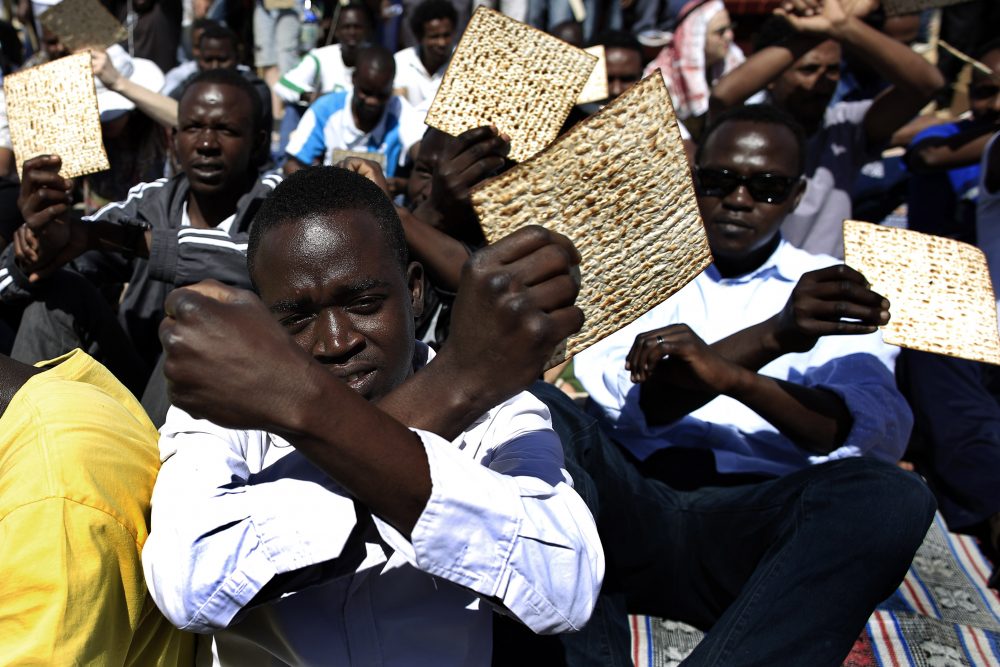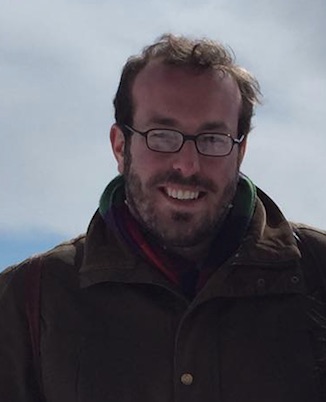Advertisement
COMMENTARY
At Passover, Reckoning With The Refugees Of Our Time

Two years ago, my wife and I began hosting Passover Seder. I embraced the chance to design my own expression of the celebration that had always been my favorite as a child. Raised in an interfaith household in a predominantly non-Jewish community, Pesach was the holiday I succinctly described to my peers as “Jewish Thanksgiving.” This equivalency was inaccurate and incomplete, to be sure, but it opened space for establishing cultural commonalities in ways that I sometimes struggled to articulate in my youth.
My affinity for Passover has since matured out of a desire to minimize differences between my traditions and those of my non-Jewish peers. I ground this appreciation of the holiday in a more confident relationship with my Jewish identity, in spite of the unorthodox nature it has taken.
I have taken to framing my Seder remarks around themes that will have resonance with family and friends who are not versed in the Passover narrative traditionally recounted during the Sedar. While referencing the Haggadah, the book that chronicles the story of the Jewish exodus from Egypt, I use this text as a point of departure for comments that evoke reflection for all who share in this holiday.
The perennial reminder of having been subjected to the yoke of oppression has allowed the memory of enslavement, homelessness and the yearning for liberation to exist undiminished in collective memory.
This year I have decided to focus my remarks at the Seder on “memory” and “dislocation.” These may not be the most uplifting foci to emphasize at a bountiful meal with loved ones. However, I do not believe that in 2017 there can be a retelling of the story of a people fleeing persecution, wandering in the wilderness and seeking to find sanctuary in a more hospitable place without having a reckoning with our own age, one that is quickly being defined by an unrelenting refugee crisis.
I find the responsibility to confront this reality inescapable. I see a social imperative in opening a space, intimate as it may be, to acknowledge and discuss the parallels between the story of Passover and today’s global cataclysm. To tell the story of Passover divorced from the refugee crisis today is to the profound detriment of the tens of millions of people who have been uprooted by conflict and strife in Syria, Afghanistan, Somalia, Sudan and beyond.
The story of Passover has been retold time and again across centuries. It is deeply entrenched in Jewish heritage. The perennial reminder of having been subjected to the yoke of oppression has allowed the memory of enslavement, homelessness and the yearning for liberation to exist undiminished in collective memory. The question traditionally posed at the Seder, Why is this night different from all other nights, is a catalyst for remembrance. Memory becomes an obligation to safeguard the past and to act in the present, informed by knowledge of another condition, one that is too unbearable to endure.
Today’s refugees are still in the wilderness, uprooted and uncertain of relief from the conditions that launched them from home into the unknown.
Passover is a reminder that collective suffering may be temporary, but its reverberations are felt across time and space. The wounds inflicted during oppression are not fleeting. They can underpin philosophical outlooks and communal anxieties.
Today’s refugees are still in the wilderness, uprooted and uncertain of relief from the conditions that launched them from home into the unknown. Their stories are not yet logged in our collective memory; their dislocation is still urgent. This year’s Seder will be a reminder that though the Israelites may have escaped their Biblical plight, humanity continues to grapple with the permanence of such suffering. Geopolitics have changed over the centuries, but the vulnerabilities of our world to such tragedy remains the subtext to this current refugee crisis.
The traditional Passover Seder hinges on the asking of four questions by the youngest person at the table. In receiving answers, this person is initiated into a state of knowing and, thus, responsible for remembering. As I approach this year’s Seder and consider my comments to friends and family, I will entertain a new set of questions whose answers are not yet determined: What memories will this refugee crisis yield? What acts of collective commemoration may the future hold for the displaced communities? How may their stories be recounted generations removed from this moment in time? How will the refugees and their descendants remember the rest of the world that watched their sagas from a distance?
